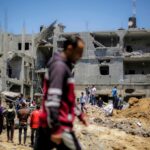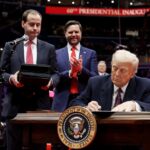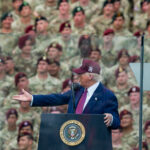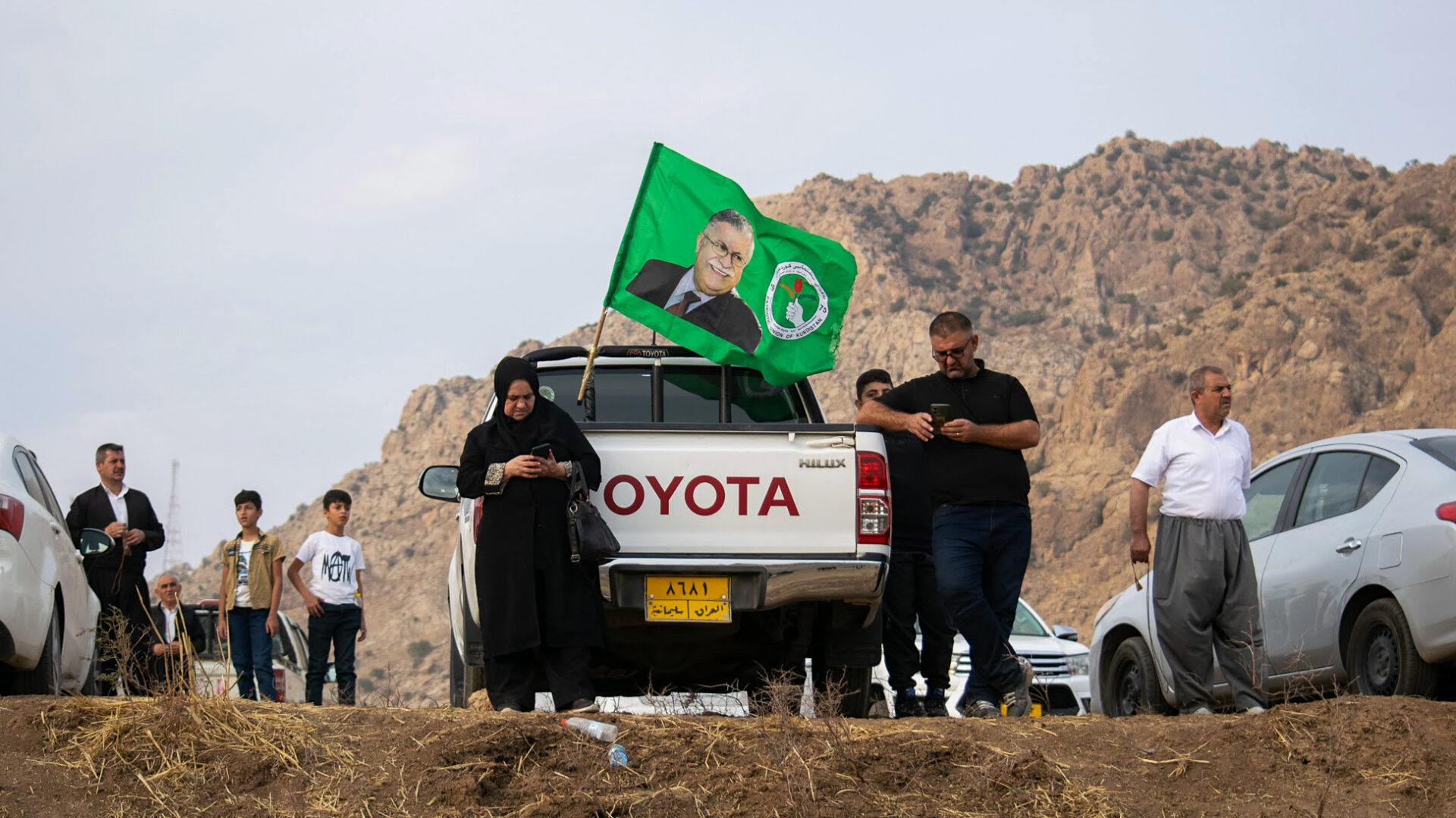At midnight on the first official day of campaigning, party workers rushed out into the streets to hang posters and bunting in prime locations across Iraq’s Kurdistan Region. Two weeks later, nearly every light pole has at least one poster and more crowd the sidewalks and medians, creating a riotous landscape of political hopefuls peering down from every available surface.
There are all the trappings of election fever. Candidates hold raucous rallies with firework displays. Party activists drive in flag-waving convoys, blasting campaign music and honking horns until the early hours. Social media is swamped with political posts and memes.
The only thing missing is voter enthusiasm. In fact, the population is angry and disillusioned. They desperately want better governance, but few believe that any of the parties running in the election can provide it.
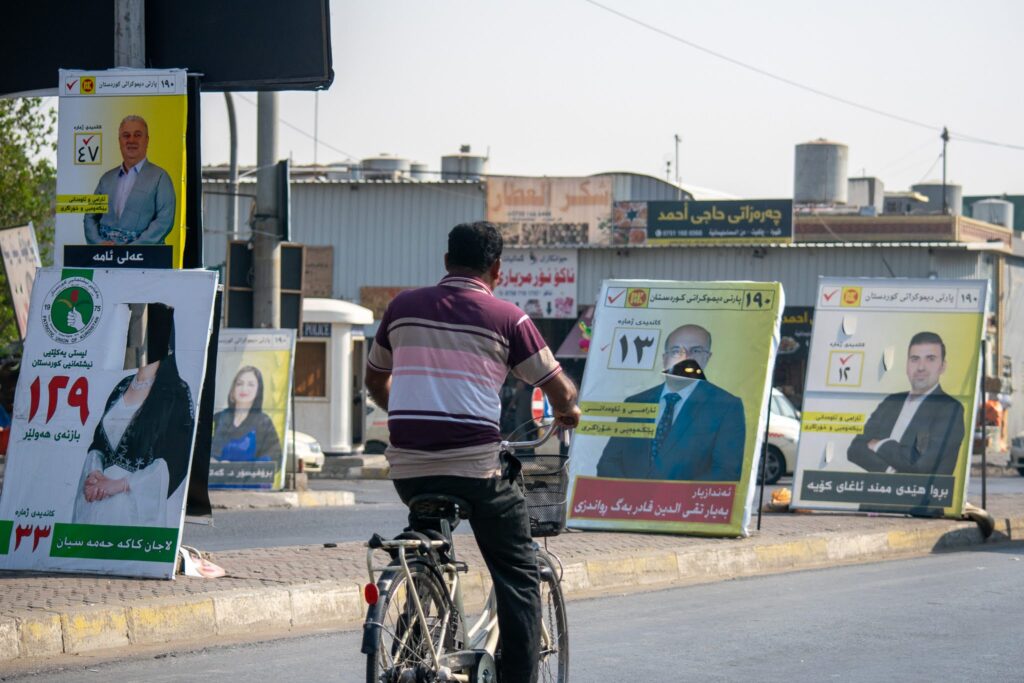
While the Kurdistan Region is more developed than the rest of Iraq, residents face numerous challenges. Jobs are scarce, and corruption is rampant. Electricity and water supplies are unreliable. Young people are choosing to migrate at alarming rates. In 2023, a controversial survey found that more than half of respondents preferred increased control from Baghdad versus continued administration by the Kurdistan Regional Government (KRG).
“It is a political system that has completely decoupled itself from the population,” explained Dastan Jasim, an associate fellow at the German Institute for Global and Area Studies (GIGA). Amid this paradox, the campaign rolls on.
Real Problems, Partisan Aims
The two main parties, the Kurdistan Democratic Party (KDP) and the Patriotic Union of Kurdistan (PUK), have the most to gain and the most to lose from the election. They have ruled the Kurdistan Region for the past three decades in a contentious but durable coalition.
The KDP dominates in Erbil and Duhok governorates, where its yellow banners predominate on the streets there. Meanwhile, Sulaymaniyah is awash in PUK green. Smaller opposition parties are also active, with the posters of the New Generation Movement, the Popular Front, and the two Islamist parties most visible.
The two ruling parties have brought in a new generation of leaders since 2018, embodied by Masrour Barzani of the KDP and Bafel Talabani of the PUK. Throughout the campaign, the pair have launched direct and indirect personal attacks at each other and bludgeoned each other with criticisms about how the other party governs its respective zone.
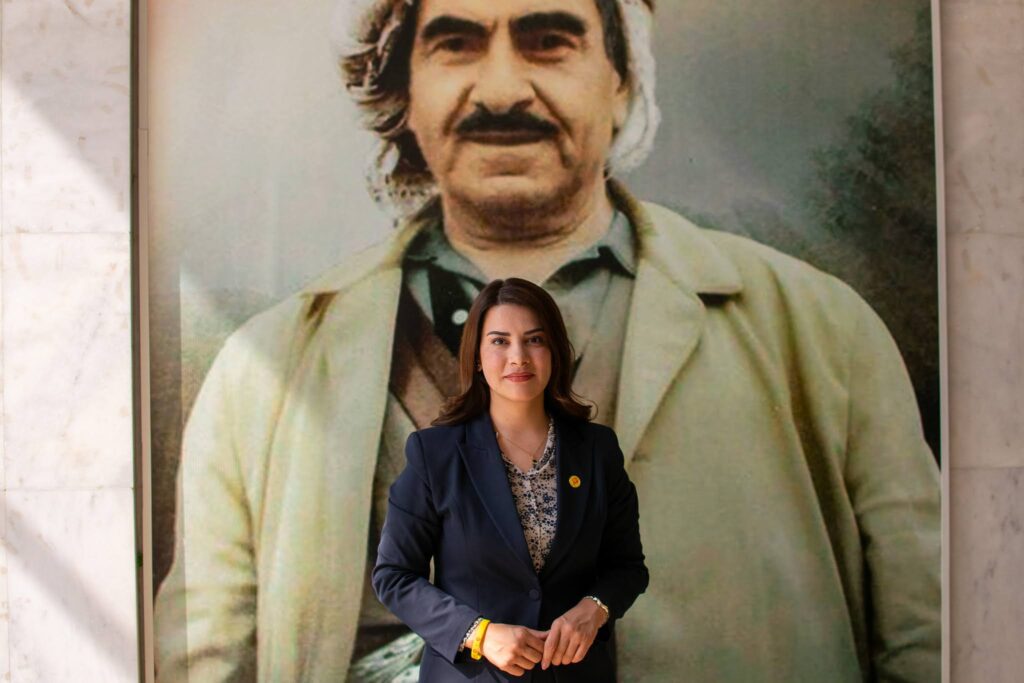
In an interview, Kazhan Mohammed, a KDP candidate running for parliament in Sulaymaniyah, politely but firmly hits the required talking points.
“We believe services are not provided enough in [Sulaymaniyah] and there are not enough opportunities for the youth too. This has made people have serious complaints,” Mohammed said. “The other areas might have shortcomings too, but people are specifically ignored in this area.”
While this kind of talk might make for rich copy in the Kurdistan Region’s infamously partisan media, it also instrumentalizes real grievances for partisan interest and turns off voters who simply want their government to work better.
Boycotting the Election
Candidates face an uphill climb to convince people not only to vote for them, but to even cast a ballot. It is not so much that voters are apathetic — most are highly politically attuned — but they do not feel that any of the parties will actually improve their lives.
“I have never voted,” said Rand Alan. He studied biology at university, but no longer works in that field. The pay at local hospitals and clinics is too low. “All of them are lying and all of them are thieves. Because of this, I will not go and vote.”
Alan’s frustration and plan to sit out the election are far from the exception, but come up frequently in conversations with eligible voters. None of his immediate family or close friends plan to vote. Some of his acquaintances will cast ballots, but only because they are part of the parties’ extensive patronage networks or feel obligated due to family loyalties.
All of them are lying and all of them are thieves. Because of this, I will not go and vote.
Voter turnout has fallen significantly over the past three decades. A whopping 87% of voters cast ballots in 1992 for the first Kurdistan Parliament. Levels were at 75% as recently as 2013. During the last regional election, however, it dropped to 60%. Another large reduction in participation could serve as a major warning sign.
Mohammed acknowledged voters’ anger, but argued that her party’s dual emphasis on economic development and Kurdish national identity would yield tangible benefits for the people.
“We think people have the right to be upset, and we keep working on that,” she said.
But Alan was unconvinced, saying that the parties’ pledges about jobs, services, and funding for infrastructure are just empty campaign rhetoric, which will be forgotten as soon as the election ends.
“It will be the same as before,” he said. “All of them are lying.”
Out in the Country
Driving out into the country, it almost seems like the election is not happening. The posters, so numerous in the cities, disappear for long stretches. The yellow and greens of the political parties are replaced by chalky brown and gray hillsides and red pomegranates nearing harvest in the orchards.
But at each roadside mosque and village intersection, the posters and bunting return — a reminder that the parties are heavily contesting these constituencies.
“Population-wise, these places are exploding. It is not the same situation as 10 or 15 years ago. Cities like Ranya, Halabja, or Kalar have doubled or even tripled in size,” Jasim said, referring to outlying areas in Sulaymaniyah governorate. Similar dynamics are present in the KDP’s zone in cities like Soran, Bardarash, and Zakho.
“But these are the areas that have been neglected,” she added, explaining that the same economic and political grievances that have disillusioned swathes of voters in the big cities are even more potent in the provinces.
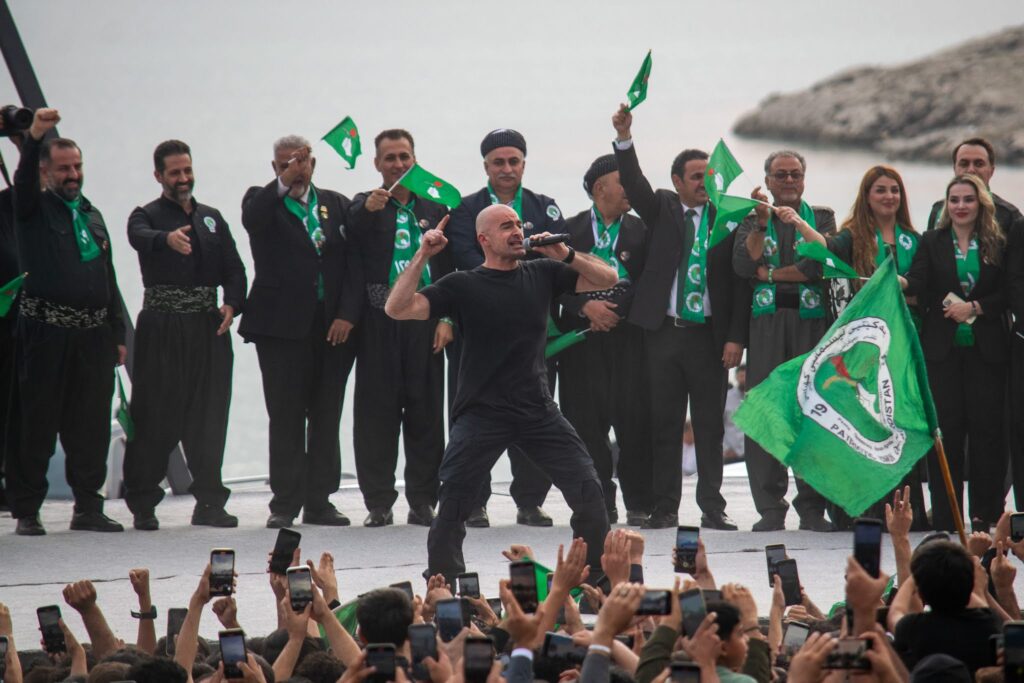
Sensing an opportunity, the Kurdistan Region’s motley groups of opposition political parties have seized on this dynamic and sought to make inroads against the KDP and the PUK. Unfortunately for them, PUK leader Bafel Talabani has effectively usurped their message and undercut their appeal.
On Oct. 12, Talabani headlined a large rally on the shores of Lake Dukan just south of Ranya, a city of a couple hundred thousand people about 60 miles north of Sulaymaniyah city. The area epitomizes the provincial battleground constituency.
As the setting sun smeared the dusty sky orange, Talabani put his famously amped-up style on full display. He worked the crowd, shouting into the microphone and pacing the stage. The PUK will end “authoritarian rule and the corrupt government that has failed to deliver services to citizens,” he thundered.
“Work and Good Streets”
Yet, many voters understand the party is at least partially responsible for the current problems. While Talabani’s performance clearly enthralled many people close to the stage, those at the back started drifting out to their cars before he had finished. Something to see, something to do, but just a show.
The formal campaign wrapped up on Oct. 15 and those who choose to cast ballots will do so on Oct. 20. Voters will emerge from schools, government offices, and community centers with purple ink-stained fingers and wait for the results to come in. One hundred people will then swear an oath of office and become members of the Kurdistan Parliament.
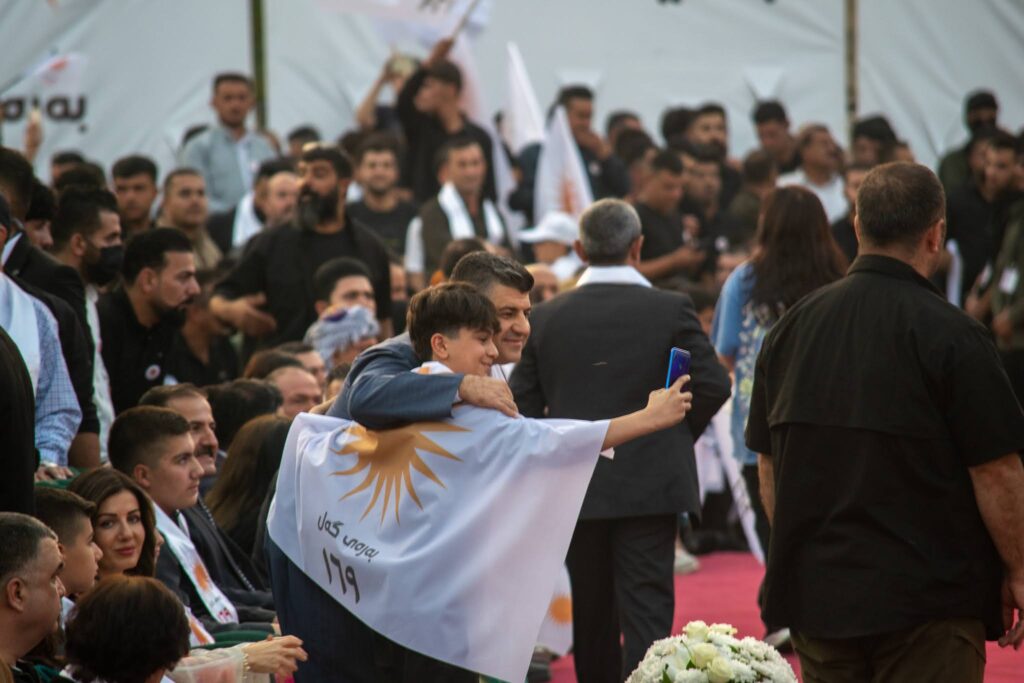
But few voters expect the election to bring substantive change. They still have hope — in part, thanks to the enormity of their needs — but they saw the campaign for themselves and they have decades of hard-earned experience.
“I want work and good streets and water,” Alan said. “I want them to bring an easier life for the people.”




